
It houses the works of renowned international jurists, whose ideas have stood out beyond borders. Thus, its primary purpose is to disseminate foreign works, translated into Portuguese, that the Series Editorial Board considers to be of significant interest to the Brazilian legal community.
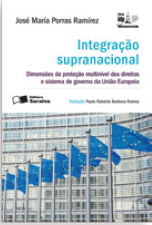
Author: José María Porras Ramirez
Synopsis: Evaluating the freedoms of thought, conscience and religion based on the Spanish constitutional system, considering its relationship with the international and community systems, professor José María Porras Ramírez demonstrates his complete familiarity with the mechanisms guaranteeing fundamental rights in force in the Union European Union, realizing in its various spheres different and complementary protection mechanisms, an essential condition for the coherence of the system throughout the multilevel environment.
Buy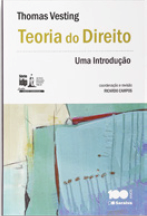
Author: Thomas Vesting
Synopsis: The Portuguese version of the book Rechtstheorie: Ein Studienbuch, by Thomas Vesting, seeks to bring to the Portuguese-speaking reader not only a theory manual well-founded in discussions in the German language – and in a certain way in the discipline Theory of Law as a whole - but also provide the reader with new interdisciplinary approaches, at times uncommon to the Theory of Law. These approaches have brought a lot of innovation to German debates in a discipline that remains in constant transformation. In that sense, this book by Thomas Vesting is a book of its time.
Buy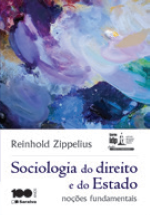
Author: Reinhold Zippelius
Synopsis: Knowing how legal and other norms participate in the shaping of communities and how law itself is a product of social relations are core questions of legal sociology addressed in this book. The intention is to deal with fundamental concepts here, so that the most important themes and thinkers are presented in an orderly, workable sequence of ideas.
Buy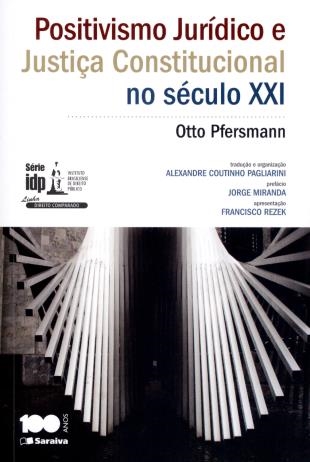
Author: Otto Pfersmann
Synopsis: Otto Pfersmann's story at the University of Vienna does not begin with himself, but with his great-grandfather, Doctor Edmund Bernatzik, Rector of that institution in 1911 and its Professor of State Law. It was at this university that Itto Pfersmann's great-grandfather discovered a student named Hans Kelsen, publishing him for the first time. Investing in Kelsen, Professor Bernatzik obtained a scholarship from Georg Jellinek for Kelsen to pursue further studies at the University of Heidelberg. It was when Kelsen wrote his habilitation thesis, under the guidance of Bernatzik, having defended it in 1910 and published it in 1911. After the death of Edmund Bernatzik (1919), Kelsen succeeded Otto Pfersmann's great-grandfather as Ordinary Professor at the University of Vienna , and taught there until 1929.
Otto Pfersmann lived in Paris many years ago, where he is Full Professor at the almost millennial Sorbonne, and from there this notable jurist and philosopher has brought together the rich Scales of France and Austria to renew the Science of Law with opinions very much his own, not being for another reason that Jorge Miranda (Preface) considers that “Otto Pfersmann is neither the successor of Kelsen nor anyone else, but he is, and deservedly so, one of the most coherent jurists that use the logic of the theory of positive legal systems today and throughout the world, so that Pfersmann is not the Kelsenian intellectual reincarnation: Otto Pfersmann is Otto Pfersmann!”.
Buy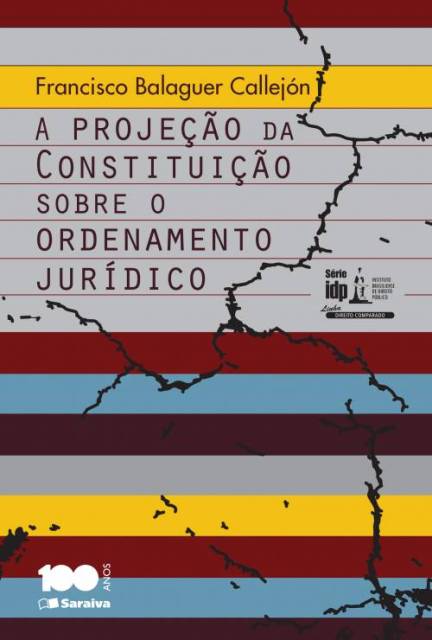
Author: Francisco Balaguer Callejón
Synopsis: When we think about the concepts through which the Theory of Sources of Law was constructed, we find a high degree of formalization and technical development that seems to separate them from their social and political foundations. Terms such as hierarchy, competence, validity, effectiveness and many others that make up the system of sources seem to acquire a life of their own and develop only within the scope of inter-normative relationships, without any relationship with society and history. This is not the case, however, since the system of sources actually expresses the way in which political and social power is distributed. For this reason, it is strongly steeped in history and closely linked to the problems that arise in relation to the distribution and control of power, which are specifically constitutional themes.
In this book we take into account this connection of meaning with social and political reality without renouncing to explain, in understandable terms, the technical-legal formulation of the major concepts that allow us to understand the structure of the legal system. These are not two contradictory visions but rather complementary ones. To understand the concept of hierarchy, competence or force of law we must necessarily explain the historical evolution that leads the legal State to the constitutional State of Law, in the same way that, to understand the source system of many countries we have to refer to recent phenomena such as supranational integration.
Buy
Author: Antonio Francisco de Souza
Synopsis: This work is aimed at anyone preparing or already dedicated to legal translation. It aims to be a theoretical and practical aid to legal translation work. With more than thirty years in this type of activity, its Author provides valuable information and guidance on the legal translation process. The time dedicated to reading this book will certainly be well spent due to the importance and vastness of the knowledge transmitted in it.
Buy
Author: Rolf Stober
Synopsis: This important work is authored by the prestigious professor at the University of Hamburg, Rolf Stober, doctor honoris causa at several higher education institutions.
The topicality of the materials certainly justifies the publication of this edition in Brazil, even from the perspective of a European legal consultant, making it possible to see it as a source of mandatory consultation among postgraduate students and professionals interested in deepening their studies. It should be noted that several law schools in our country have already incorporated the subject into their curriculum.
As revealed in the introductory part, economic administrative law is an especially dynamic domain, as it understands the new political-economic challenges and the practical needs of the current economy.
Regarding the systematization of themes, they were treated in two parts: general economic administrative law and special economic administrative law. In the first, we have the relevant legal and constitutional foundations of economic administrative law, such as the scope of application of the discipline, the legal protection of economic activity, the organization and financing of economic administration, among other topics; in the second, the different branches of industry, the economic law of urban solid waste, subsidies, etc.
This is the most widely published edition in Germany on economic administrative law. The translation adhered to the idea of fidelity in relation to the content of the message, considering the expectations of the Brazilian reader, especially legal scholars. They are expected to perceive that the work was, in its origins, written according to a legal-cultural different from the national context. Despite this aspect, which, in fact, is elementary to any and all translations, it is intended that general economic administrative law may arouse interest among the specialized public.
Buy
Author: Reinhold Zippelius
Synopsis: Reinhold Zippelius, one of the most eminent German law professors, is a retired professor at the University of Erlangen-Nürnberg, and is the author of a vast legal work. This book corresponds to the translation of the 5th edition (2007) of the original German “Rechtsphilosophie” and includes updates, until March 2010, which the prestigious professor carried out with a view to the next edition.
Buy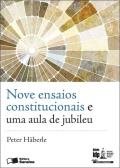
Author: Peter Häberle
Synopsis: The depth of Häberle's knowledge, his methodological originality and his constitutional theory, aimed at defending tolerance and protecting fundamental rights in the face of the complex reality of today's world, are highlighted and are in line with several statements I have already made about the importance of this German professor for strengthening the Constitutional State.
Specifically in relation to Brazil, Häberle's contribution has been invaluable to the development of national law. His recognized idea of an open society of interpreters of the Constitution, which advocates the participation of all who experience the constitutional reality in the processes of constitutionality control, ended up, among us, influencing the acceptance of the so-called amici curiae and the holding of public hearings by the Federal Supreme Court. The Court has also used, in its rulings, other ideals defended by Häberle, such as thinking about the possible and constitutional mutation, in addition to the need to open up to foreign law.
It is a compilation of the German professor's productions published in legal magazines in Spain and Latin America, now translated into Portuguese. In these texts, Häberle addresses current topics that recur in his doctrine, such as fundamental rights, the European Union's constitutionalization process, constitutional interpretation and the relevance of culture in constitutional texts.
I am certain of the importance and topicality of the issues discussed here and I am sure that this will be, in addition to being an interesting read, a great base for those who want to deepen their knowledge and develop critical perspectives for legal debates.
Buy
Author: Bodo Pieroth, Bernard Schilink
Synopsis: Considered one of the most relevant works ever produced in modern German law, the book complements existing studies on fundamental rights, presenting precious elements for those who wish to deepen their knowledge in the scope of international academic law. In this work, the authors highlight the importance of the rulings of the German Federal Constitutional Court, as the objective is to expose the fundamental rights contained in the Greater Law of that country. With this, we intend to critically and comprehensively inform the interested reader, especially postgraduate students, about the jurisprudence of the Federal Constitutional Court also in light of the main doctrinal positions.
Buy
Author: Gustavo Zagrebelsky
Synopsis: This book is of the greatest importance for the improvement of our political and legal culture, and this less because of the invocation of the crucial sacrifice of the Nazarene - of permanent relevance and relevant interest for Christianity - than because of the recall for the debate, on essence of democracy, in a context in which ethical and cultural pluralism, such as the right to different world views or different ways of life, has the perverse effect of the contradictory proclamation that the only truth is that everything is relative, both in the public space and in the scope of private relationships, in a stance so harmful to the preservation of society that every act of authority is perceived as the imposition of unshared values, and the concept of society itself does not seem to adjust to this new reality.
Buy
Author: Antonio Francisco de Sousa
Synopsis: Freedom of assembly and demonstration is one of the most important fundamental guarantees of the Democratic Rule of Law, which can be assessed according to the level of democracy achieved in a given society. /p>
The evolution of the right to assembly and demonstration in Europe has followed the socioeconomic evolution of each country. Today, meetings and demonstrations are part of the political daily life of Western democratic societies, to the point of being dubbed, according to the Author, “democracies of demonstrations”. /p>
Its legal regime is quite different in comparative law, although no substantial differences are observed within the Member States of the European Union. /p>
There are countries that expressly recognize it in the Constitution, such as Portugal, Germany, Italy, Spain and Greece. And there are those who make it depend on a measure of “good will” from the police and the courts, like England and, to a certain extent, France. /p>
In Brazil, although there has been a certain improvement in recent decades, the subject requires detailed reflection in view of certain specificities, such as the issue of the duty of prior notice, the duty of cooperation from authorities, freedom of choice regarding the place, day and time , the moment of its suspension, the application of sanctions in the event of damage, the limits of citizens' rights and freedoms and police action, etc. /p>
The Author writes in light of the fundamental requirements of the Democratic Rule of Law, generally recognized in the Portuguese Constitution and the European Convention on Human Rights. By the way, they are also approved by the Brazilian Constitution (art. 5, XVI). Certainly, this work represents a valuable scientific contribution to the legal community.
Buy
Author: Konrad Hesse
Synopsis: This book brings together essential texts, true “Fundamental Themes”, relating to the Constitution and its interpretation. Our aim is to present to the Brazilian reader the strength and originality of Konrad Hesse's thought.
Through the selected texts, we intend to provide a faithful representation of the ideas of one of the great theorists of Constitutional Law of the last century, hoping that the study and reflection on the texts that compose it can contribute to debates regarding the meaning of Constitution, given the constant challenges for its correct interpretation and to preserve its normative force.
Buy
Author: Diego Valades
The book is a compilation of interviews given by Professor Peter Häberle to several constitutionalists, of different nationalities, where the professor reviews the origin of his theses and the evolution of his thought.
Peter Häberle is a retired professor of Public Law and Philosophy of Law at the University of Bayreuth, in the Federal Republic of Germany, and currently serves as director of the Institute of European Law and European Legal Culture, at the same university center.
Born in Göppingen, Germany, in 1934, he studied at the Universities of Tübingen, Bonn, Montpellier (France) and Freiburg. In his doctoral thesis, he brilliantly dealt with the essential content of fundamental rights in the Bonn Basic Law.
His work as a researcher was the subject of numerous honorable distinctions. In 1998, he was awarded the research award for international cooperation from the Max Planck Institut (Max-Planck-Forschungspreis für Internationale Kooperation).
His work is extensive, comprising hundreds of articles and more than twenty monographs, with fundamental contributions to European and global constitutional doctrine, in several works.
Peter Häberle stands out, in addition to his invaluable legal expertise, for the depth of his philosophical, theological and artistic knowledge, which has given this notable professor the title of an authentic humanist. His work has attracted attention for its methodological originality, updating and conceptual depth, which allows new approaches to the human sciences, in general, and legal sciences, in particular.
Defender of tolerance and acceptance of others, as inseparable cultural elements of a constitutional theory, protective of the reality imposed by the new millennium, Professor Peter Häberle contributed enormously to the strengthening of the Constitutional State, especially in countries of democratic transition. In Brazil, his contribution has been invaluable to the development of constitutional law.
Buy